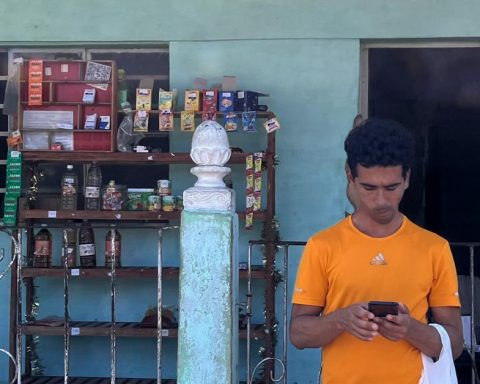Consumers in Colombia are on high alert due to the high level of inflation and what this implies for their daily lives in managing their income and expenses.
This is how 97% of those surveyed in the country affirmed that they have felt that the products they buy regularly have become more expensive.
(Read: This is how you can make your money work in times when ‘everything is expensive’).
Likewise, 75% of Colombian consumers are extremely concerned about the increase in the cost of living.
The data comes from the Bain & Company Consumption Study, which allows us to analyze the behavior of consumers in Colombia, Argentina, Chile, Brazil, Mexico and Peru.
The sample that was taken was 10,000 people and evaluated six themes: general feeling; finances and personal expenses; employment; free time and leisure; Alimentation and drinks; Health & Wellness.
This feeling of rising prices among Colombians, without much distance, is above that registered for other countries in the region: Mexico (94%), Argentina (96%), Brazil (93%), Chile (95%) and Peru (95%).
In the case of Colombia, the sectors that reported the greatest feeling of rising prices were food (74%), personal care products (45%), restaurants (43%) and transportation (43%).
This, somehow, is in line with the reports of increased inflation in those items of the family basket that Dane has delivered lately.
(Also: Why the country is the only one in the region where inflation continues to rise).
Catalina Fajardo, a partner at Bain & Company, maintains that “the local market today is facing the reconfiguration of the behavior of individuals caused by an environment of uncertainty.” Due to the above, she complements her, there is a challenge for companies and the public sector since the increase in consumer prices can trigger an economic recession that would end up affecting growth.
Catalina Fajardo states that the study Several important conclusions can be drawn about what the consumer lives in the current situation.
“LThe first of these is that pocket economic stability has become a priority for Colombians, since according to the report, 76% of them seek to continue reducing or planning to reduce their expenses.”. To achieve this, they are determined to take measures such as completely eliminating certain purchases, carrying out tasks independently, regulating electricity consumption and continuing to eat at home, among others.
Second, says the expert, The current situation has generated an expansion of the concept of well-being. In recent years it contemplated physical health and mental well-being, but it has been extended to financial well-being. In fact, it is revealed that 71% of those who stated that they were concerned about their mental health expressed concern about the state of their finances.
Another conclusion has to do with the “fluidity of spaces”. “Consumers are now constantly weighing the home, office, and other spaces based on habits, comfort, and savings calculations,” he says.
For this reason, not only is remote work a reality for 60% of those surveyed, but it is almost 40% affirm that they have changed or are changing their leisure activities in order to concentrate at homeas a lever to reduce spending”, explains Fajardo.
(Keep reading: There is no precedent for central banks successfully controlling inflation.)
Regarding the sentiment perceived by Latin Americans, Fajardo says that “it is not so positive.” “When asked how they felt in the last 3 months, the majority of consumers (40%) described their mood with a negative connotation”write down.
On the one hand, Chileans and Argentines reported the lowest moods, with almost 50% of their consumers reporting a negative mood. Regarding the environment, in all countries, consumers are especially concerned about the increase in the cost of living (4.29/5), the stability of their country (4.16/5) and politics in their country ( 3.82/5).
(Read: Despite less appetite to buy a home, prices continue to rise).
And finally, while consumers have embraced the advantages of digital – convenience, connection, entertainment – they have realized its drawbacks. Led by Gen Z, almost a third of those surveyed said they want to reduce the time spent on these digital activities.
CONSTANCE GOMEZ GUASCA
Journalist Portfolio

















